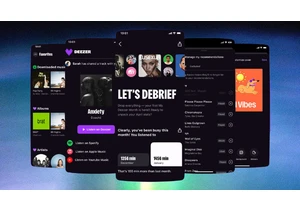There are certain social media rules we can all agree on: Ghosting a conversation is impolite, and replying “k” to a text is the equivalent of a backhand slap (violent, wrong, and rude). But what about the rest of the rules? When can we really remind someone of our old Venmo request? What happens when someone tries to flirt with you on LinkedIn?
Fortunately, terminally online writers Delia Cai and Steffi Cao are here to answer all your digital quandaries, big or small. Welcome to Fast Company’s advice column, Posting Playbook. This week, Delia and Steffi tackle your biggest questions about following (or unfollowing) with delicacy.
I can’t stand my friend’s newsletter, even though I adore them as a person. Is it bad to hit “unsubscribe”?
Delia: It’s possible that your friend will see you unsubscribe depending on what platform they use and what settings they have on. (For example, on Substack, you can choose to get emails alerting you whenever someone cancels their subscription.) So, take that into account. You might have a little explaining or some hurt feelings to contend with if that’s the case; I’d just get ahead of it and explain to them that you’re just feeling a little oversubscribed, literally. (If it’s a paid subscription that you’re cancelling, you can explain that you’re cutting back on costs in general.)
Personally, I would probably just create a filter on my inbox that sends these newsletter emails automatically to a folder. That way, you don’t have to deal with them, but you also don’t have to risk letting your friend know you’re not a fan. I don’t think anyone expects their friends to keep up with every issue they send out, so you can always say you’re behind on emails if this person asks you about whether you’ve read their latest missive.
Steffi: Delia’s automatic filter solution is a tried-and-true method, and is a kind solution that applies to many of the email conundrums that we face. There are too many emails, and specifically, a ton of newsletters! It’s overwhelming and requires an organizational system to make sure we get the information we need. That being said, I would like to tell everyone that has a newsletter: Work under the assumption that your friends will not read it or subscribe, and that’s okay.
Your newsletter should be for people who want to read it, anyhow. Just because someone isn’t following you on Substack doesn’t mean they love you less, and someone that is opening your emails and reading them and sharing their insights with you is someone that loves you a lot. If you’ve decided to write newsletters for public consumption, these sorts of scenarios are inevitable. It’s not worth getting bent out of shape or chasing down people who’ve unsubscribed, and instead focus on the people who are interested in what you have to say.
My dad followed me on Instagram, and I’m not comfortable with that! What’s a nice way to tell him?
Delia: I think one of the weirdest things about being on social media right now is that we’re all sharing the same space—with our coworkers, our family members, our friends, and strangers that compose our “audience,” whoever they are! I would acknowledge your dad’s attempt to stay posted on your life and tell him that you want to keep Instagram as a more dedicated space for work/socializing/etc. I think you can frame the issue in terms of like, “Hey Dad, can we work out a special way for me to keep you updated?” Tell him that you feel a little embarrassed about the “juvenile” stuff you’re posting on Instagram, and that you’d rather have a private, just-for-us avenue for sharing things that you’re extra-proud of with him. (Alternatively, you can also “hide” your Story and then just be careful about your grid posts.) Whatever you do, don’t block your Dad without saying anything! That’s just kind of sad.
Steffi: Sorry, Delia, I’m team Block Your Dad. Here’s my thing about generational etiquette, in the words of Ronny Chieng: The social media information asymmetry is out of control right now. You have 14-year-olds back-grooming their algorithms in order to mobilize their network of stan accounts to flood government surveillance apps en masse with K-pop fancams while your grandparents are still right-clicking to copy-paste. As such, we’re living in a time where you have two groups of people working under entirely different social decorum contracts, simply delineated by how much of their lives they’ve spent online. Have you ever seen a Gen Xer’s Facebook or WeChat? They blow up the comments with full sentences containing personal information, posting sentences like “hope your daughter Lillian is doing well at the University of Manchester.” And they reply to each other several times! When do you see anyone under the age of 35 doing that? Among younger people, it might even be considered totally socially unacceptable to post information like that in the comments for fear of doxxing.
Like Delia said, the follow is totally innocuous—your dad is probably just trying to keep up with your life—but blocking him doesn’t mean you love him any less, unlike the way it would definitely signify bad blood if you blocked someone who has had as much online exposure as you. Not to be like that, but depending on his tech savvy, how would he even know if you blocked him? Still, if you think you’d feel too guilty about it (fair enough), I would recommend muting him from your Stories and keeping it tame on your feed. But overall, I think it’s better to play by boomers’ social code when it comes to this stuff, which treats the digital ecosystem as a separate entity rather than an overlapping reality. As long as your dad knows how much you love him, and you spend time showing it in person, that’s all that matters.
Login to add comment
Other posts in this group

If real Easter eggs aren’t your thing this weekend, you may find hunting for digital ones more enjoyable. And there are some cool ones to find at your fingertips, provided you have an iPhone or Ma

With music streaming, users have gotten used to being at the mercy of algorithms. But French music streamer Deezer is making it easier for its subscribers to make the algorithm work for them.

Trying to get from point A to point B? If only it were that simple! With any manner of travel these days, you’ve got options: planes, trains, buses, ferries, and beyond. And finding the best

When Twitter cofounder and Medium founder Evan “Ev” Williams was planning his 50th birthday party, he didn’t know who to invite. Having spent more of his life building and scaling tech

If you thought you’d heard the last of the viral “Apple” dance, think again. The TikToker behind it is now suing Roblox over its unauthorized use.
Last year, during the height of Brat su

A Wall Street Journal report this week gave an extensive look into how Elon Musk, the

Netflix fared better than analysts anticipated during the first thr
